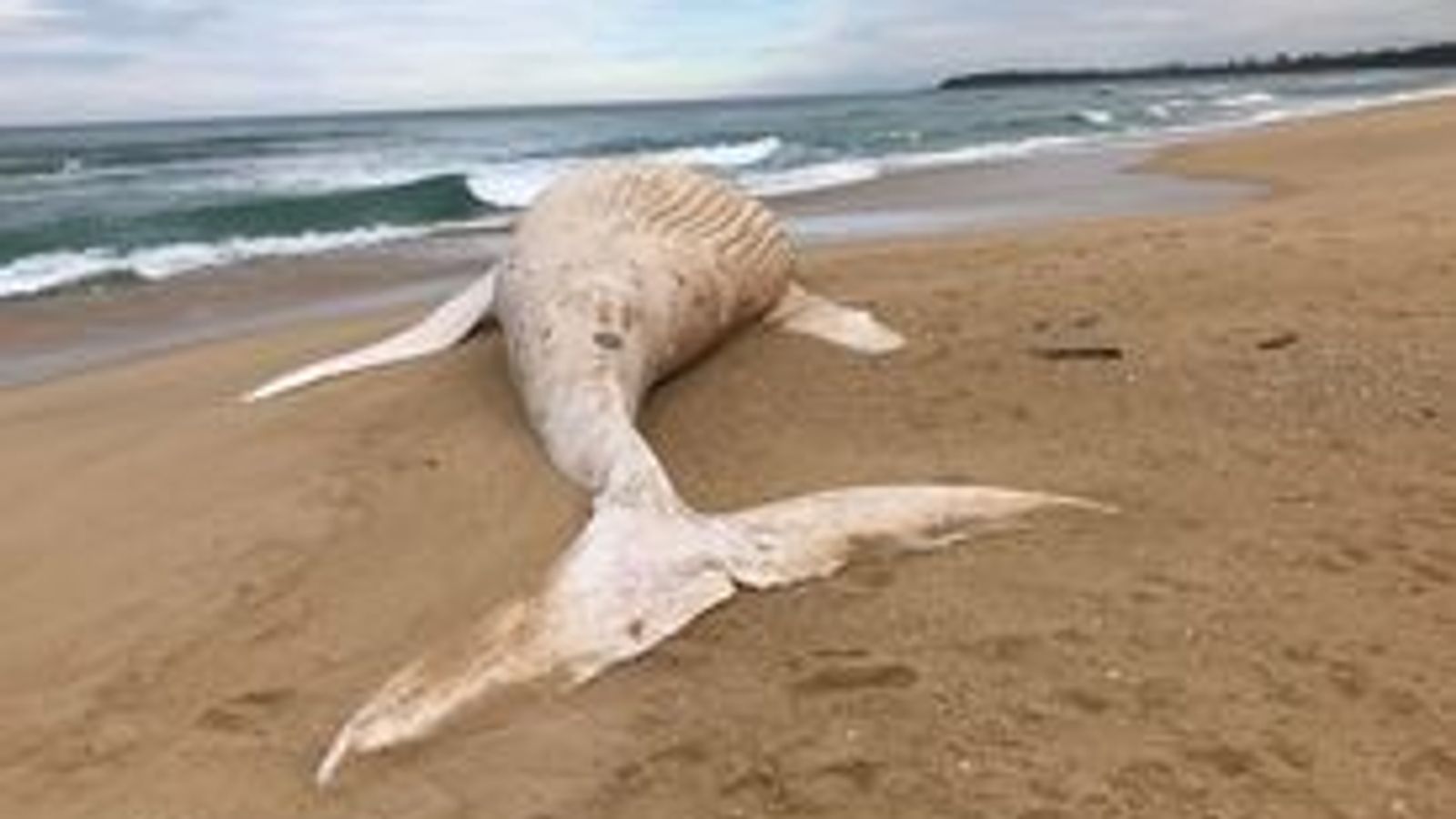A rare albino whale that washed up on a beach in Australia is not the world-famous white humpback Migaloo.
The discovery of the whale carcass on Saturday morning prompted fears that the beloved snow-white whale had died.
But a government environment official quoted by the Australian Associated Press has now confirmed the whale is a young female, not the male Migaloo.
It means that the mystery of Migaloo’s whereabouts continues.
Migaloo, thought to have been born in 1986, had regularly been spotted off the coast of Australia since 1991 but has not been seen in the last two years.
Marine experts said the location of the whale lines up with Migaloo’s migration pattern.
Government environment official Peter Brick said: “Officers have examined images of the dead humpback whale at Mallacoota and have confirmed it is a sub-adult female. Migaloo is a male.”
Fears rare white whale found washed up on Mallacoota beach could be world-famous humpback Migaloo
Sydney floods: Families need boats to leave home as deluge of floods hits city suburbs
Tennis star Nick Kyrgios charged with assault of former girlfriend, report says
People have been warned not to touch or interfere with the dead whale, and Victoria’s environment department (DELWP Victoria) has said significant penalties will apply to anyone attempting to take unauthorised samples – such as teeth – as a souvenir.
Local resident Peter Coles, who was out fishing when he kayaked across to see the dead mammal, told Sky News: “It was beautiful even though it was dead. It was pretty spectacular. It was pure white and marble looking. I thought it looked like a sculpture, it almost didn’t look real.
“I paced it out and it was 10m long. I didn’t touch it and it was a bit smelly. There weren’t any signs of decomposition but it did look very, very dead.”
In 2010 Migaloo was filmed 1.2 miles from Green Island near the Great Barrier Reef in North Queensland, the first time such a creature had ever been captured on film.
Albinism is said to be extremely rare among whales.
Erich Hoyt, a research fellow at Whale and Dolphin Conservation in the UK, has said “fewer than 1 in 10,000 humpback individuals” are likely to be affected.





